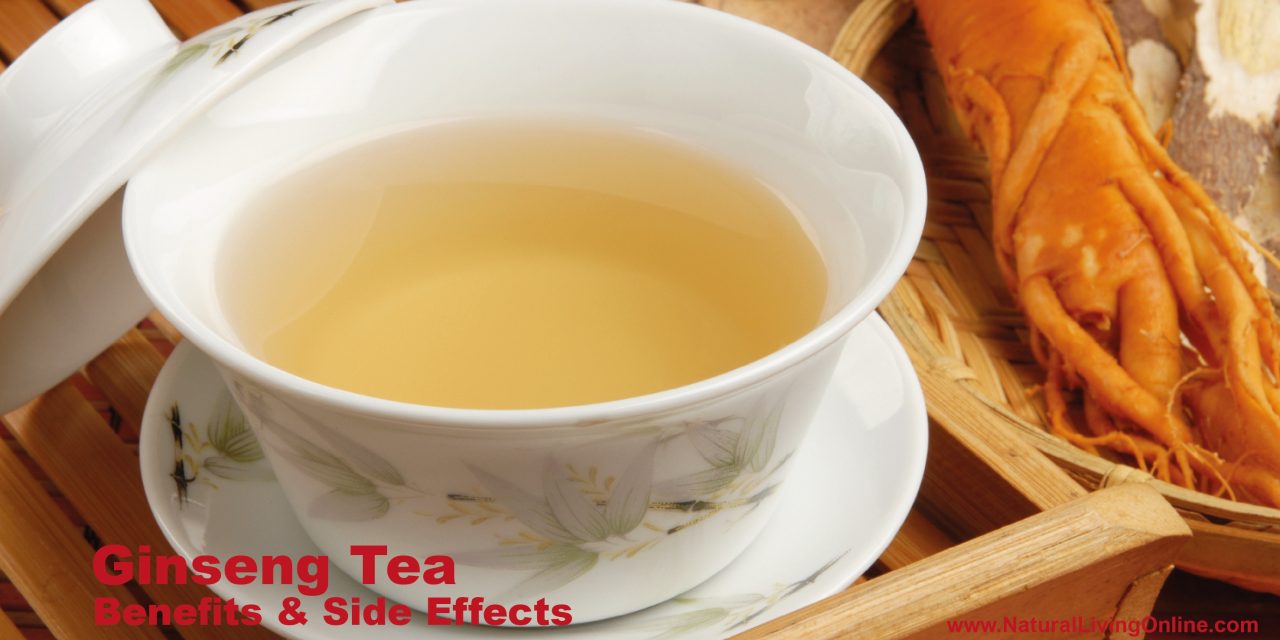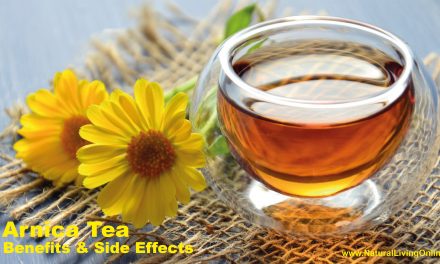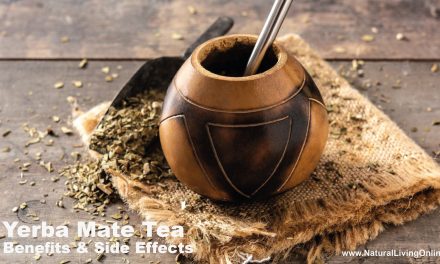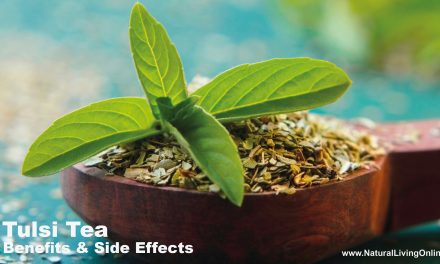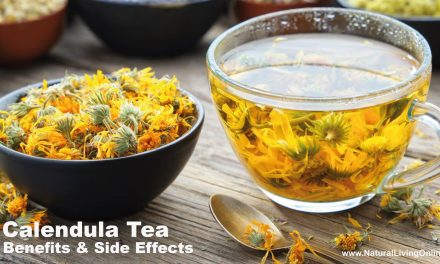Ginseng tea has been used for centuries in traditional medicine. This herbal drink comes from the roots of ginseng plants and offers many potential health benefits. People drink it to boost energy, improve focus, and support their immune system.
Ginseng tea may help enhance brain function, reduce inflammation, and regulate blood sugar levels. It contains natural compounds called ginsenosides that give it these beneficial properties. Some studies suggest it could also aid in weight management and heart health.
While ginseng tea is generally safe for most people, it’s important to drink it in moderation. Too much may cause side effects like headaches or trouble sleeping. It’s best to start with small amounts and see how your body responds.
Key Takeaways
- Ginseng tea contains compounds that may boost energy and brain function
- Regular consumption might help support the immune system and reduce inflammation
- Moderation is key when drinking ginseng tea to avoid potential side effects
Nutritional Profile and Key Components
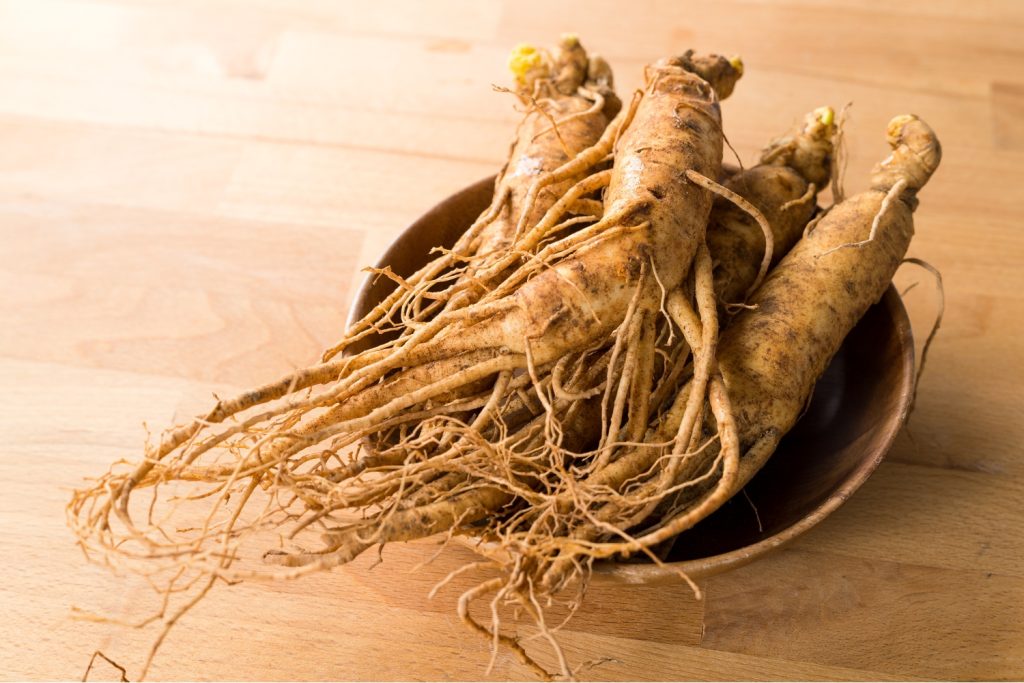
Ginseng tea contains powerful compounds that give it unique health properties. The two main varieties have different nutritional profiles and effects on the body.
Ginsenosides and Their Health Impact
Ginsenosides are the most important active compounds in ginseng. These natural chemicals give ginseng its beneficial effects. There are over 30 types of ginsenosides found in ginseng root.
Ginsenosides can help reduce inflammation in the body. They also act as antioxidants to protect cells from damage. Some key ginsenosides include Rb1, Rg1, and Rg3.
Different ginsenosides have varied effects:
- Rb1: May improve memory and learning
- Rg1: Can boost energy levels
- Rg3: Potential anti-cancer properties
The amount and types of ginsenosides differ between ginseng varieties. This impacts their health benefits.
Comparison of Asian and American Ginseng
Asian ginseng (Panax ginseng) and American ginseng have distinct qualities:
Asian Ginseng:
- Higher in total ginsenosides
- More stimulating effect
- May increase body temperature
- Often used for boosting energy
American Ginseng:
- Cooling properties
- Milder, less stimulating effects
- Higher in Rb1 ginsenoside
- May improve brain function
Both types contain beneficial antioxidants and minerals. The choice between them depends on the desired health effects. Asian ginseng is better for increasing alertness, while American ginseng is often preferred for stress relief.
Health Benefits of Ginseng Tea
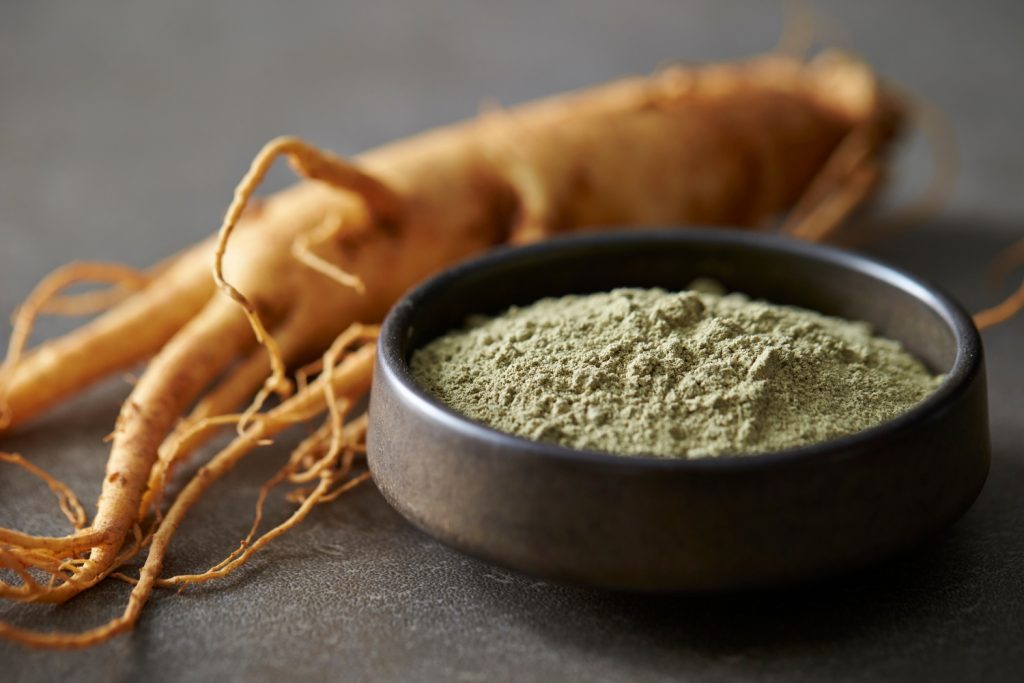
Ginseng tea offers several potential health benefits. It may boost immunity, enhance cognitive function, help regulate blood sugar, and support heart health.
Immune Support and Cold Prevention
Ginseng tea may strengthen the immune system. It contains compounds that can stimulate the production of immune cells. This boost in immunity might help the body fight off infections and viruses more effectively.
Some studies suggest ginseng tea could reduce the severity and duration of cold symptoms. It may also lower the risk of catching a cold in the first place.
Regular consumption of ginseng tea might provide ongoing immune support. This could be especially beneficial during cold and flu seasons.
Improving Cognitive Function and Mood
Ginseng tea may enhance brain function. It could improve memory, concentration, and overall mental clarity.
The tea’s compounds might increase blood flow to the brain. This improved circulation could boost cognitive performance and reduce mental fatigue.
Some people report feeling more alert and focused after drinking ginseng tea. It may also have mood-boosting properties, potentially helping to reduce stress and anxiety.
Regular consumption might offer long-term benefits for brain health. Some research suggests it could help protect against age-related cognitive decline.
Potentials for Blood Sugar Regulation
Ginseng tea might help regulate blood sugar levels. This could be particularly beneficial for people with diabetes or those at risk of developing the condition.
Some studies indicate that ginseng may improve insulin sensitivity. This means the body could use insulin more effectively to control blood sugar.
Regular consumption of ginseng tea might help maintain stable blood sugar levels throughout the day. This could potentially reduce the risk of blood sugar spikes and crashes.
It’s important to note that more research is needed in this area. People with diabetes should consult their doctor before using ginseng tea as a supplement.
Efficacy for Cardiovascular Health
Ginseng tea may offer benefits for heart health. It might help lower blood pressure and improve circulation.
The tea’s compounds could help relax blood vessels, allowing for better blood flow. This might reduce strain on the heart and lower the risk of cardiovascular problems.
Some studies suggest ginseng tea may help reduce bad cholesterol levels. It might also increase good cholesterol, potentially improving overall heart health.
Regular consumption of ginseng tea could contribute to long-term cardiovascular health. However, more research is needed to fully understand its effects on heart function.
Consumption Guidelines and Preparations

Ginseng tea offers many health benefits when prepared and consumed properly. Knowing the right brewing methods, dosage, and serving suggestions can help maximize its potential.
Brewing the Perfect Cup of Ginseng Tea
To make ginseng tea, start with high-quality ginseng root. Use 1-2 grams of dried ginseng or 2-3 slices of fresh root per cup of water. Place the ginseng in a pot with cold water and bring to a boil.
Reduce heat and let it simmer for 15-20 minutes. Strain the tea into a cup. For a stronger brew, steep the ginseng longer.
Some people prefer using ginseng tea bags for convenience. Steep the tea bag in hot water for 3-5 minutes.
Dosage and Frequency of Intake
The recommended dosage of ginseng tea varies based on individual needs and health conditions. Generally, 1-2 cups per day is considered safe for most adults.
Start with one cup and observe how your body reacts. Increase gradually if needed.
It’s best to limit consumption to a few weeks at a time, followed by a break. This helps prevent potential side effects from long-term use.
Pregnant women, children, and those on medication should consult a doctor before drinking ginseng tea.
Serving Suggestions and Additions
Ginseng tea has a distinct earthy flavor that some find bitter. To enhance the taste, try these additions:
- A teaspoon of honey for sweetness
- A slice of lemon for a citrusy twist
- A dash of cinnamon for warmth
For a refreshing summer drink, let the tea cool and serve over ice. Ginseng tea powder can be mixed into smoothies or yogurt for an energy boost.
Some enjoy blending ginseng with other herbs like ginger or licorice root for added flavor and benefits.
Potential Side Effects and Precautions
Ginseng tea can cause unwanted effects and may not be suitable for everyone. People should be aware of possible reactions, medication interactions, and special considerations before drinking it.
Ginseng tea may cause side effects in some people. Common reactions include headaches, dizziness, and changes in blood sugar levels. Some users report feeling restless or having trouble sleeping.
Digestive issues can occur. Nausea and diarrhea are possible after drinking ginseng tea. These effects are usually mild but can be uncomfortable.
Allergic reactions are rare but serious. Signs include:
- Hives
- Difficulty breathing
- Swelling of face, lips, or throat
If these symptoms appear, medical help should be sought immediately.
Interactions with Medications and Conditions
Ginseng can interact with certain medications. It may affect blood thinners like warfarin, potentially increasing bleeding risk. People taking these drugs should consult their doctor before using ginseng tea.
For those with diabetes, ginseng might lower blood sugar. This can be dangerous if combined with diabetes medications or insulin. Close monitoring of blood sugar levels is important.
Ginseng may also interact with caffeine. The combination can increase the risk of overstimulation and insomnia. Moderation is key when consuming both.
Special Considerations for Vulnerable Populations
Pregnant and breastfeeding women should be cautious. The effects of ginseng on fetal development and infants are not well-studied. It’s best to avoid ginseng tea during these times.
Children and older adults may be more sensitive to ginseng’s effects. They should start with smaller amounts if using ginseng tea.
People with heart conditions or high blood pressure need to be careful. Ginseng can affect heart rate and blood pressure in some cases.
Those scheduled for surgery should stop using ginseng tea at least two weeks before. It can interfere with blood clotting and affect anesthesia.
Ginseng Tea in Traditional and Herbal Medicine

Ginseng tea has deep roots in traditional medicine and continues to be popular in modern wellness practices. It is valued for its potential health benefits and adaptogenic properties.
Role in Traditional Chinese Medicine
In Traditional Chinese Medicine (TCM), ginseng tea is a key herbal remedy. It’s believed to boost qi, the vital life force. TCM practitioners use it to balance yin and yang energies in the body.
Ginseng tea is used to treat weakness, fatigue, and stress. It’s thought to strengthen the immune system and improve overall vitality. Different types like Korean ginseng and Siberian ginseng have unique properties in TCM.
TCM doctors often prescribe ginseng tea for:
- Boosting energy
- Improving mental clarity
- Supporting heart health
- Aiding digestion
Modern Uses in Herbal Wellness Practices
Today, ginseng tea is popular in herbal wellness routines worldwide. People drink it for its potential health benefits.
Some modern uses of ginseng tea include:
- Reducing stress
- Improving focus and memory
- Supporting immune function
- Managing blood sugar levels
Research suggests ginseng may help with:
- Lowering inflammation
- Reducing cancer-related fatigue
- Supporting healthy blood pressure
Herbal practitioners often recommend ginseng tea as a natural energy booster. It’s seen as a safer alternative to caffeine. Many people enjoy it as a daily tonic for overall wellness.
Frequently Asked Questions
What are the potential health benefits of consuming ginseng tea for females?
Ginseng tea may help women with menstrual problems and cramps. It could also support weight management efforts. The tea might boost energy levels and help combat fatigue, which can be especially helpful during menstruation or menopause.
Can ginseng tea have a positive effect on sexual health?
Ginseng tea may help with erectile dysfunction in men. For women, it could potentially increase libido and sexual satisfaction. The tea’s energizing properties may contribute to improved sexual performance and stamina for both genders.
In what ways can males benefit from drinking ginseng tea?
Men may experience improved cognitive function and mental clarity from drinking ginseng tea. It could help enhance focus and memory. Ginseng tea might also support male reproductive health and boost the immune system.
How does ginseng tea contribute to skin health?
Ginseng tea contains antioxidants that may help fight signs of aging. It could promote a more youthful appearance by reducing fine lines and wrinkles. The tea might also improve skin elasticity and hydration, leading to a healthier complexion.
What are the common side effects associated with the consumption of ginseng tea?
Some people may experience headaches or insomnia when drinking ginseng tea. Digestive issues like nausea or diarrhea can also occur. In rare cases, ginseng tea might cause allergic reactions or interfere with certain medications.
Is it safe to consume ginseng tea on a daily basis?
Most healthy adults can safely drink ginseng tea in moderation. It’s best to start with small amounts and gradually increase intake. Pregnant women, people with certain medical conditions, and those taking specific medications should consult a doctor before drinking ginseng tea regularly.
References
Biological Activities of Ginseng and Its Application to Human Health
Efficacy and safety of ginseng
This website does not provide medical advice.
All information provided on this website, and on associated social media networks, including but not limited to texts, images, and numbers are for general information purpose only. It is not intended as medical advice and it does not include all possible precautions, side effects, or interactions that may occur. Neither NaturalLivingOnline.com nor its author/founder take responsibility for how you use this information. Statements contained on NaturalLivingOnline.com have not been evaluated by the FDA. You should conduct thorough research via multiple sources and consult your physician or qualified doctor before using any essential oil or herbal remedy. Information on NaturalLivingOnline.com must not be relied upon for medical, legal, financial or other decisions.

